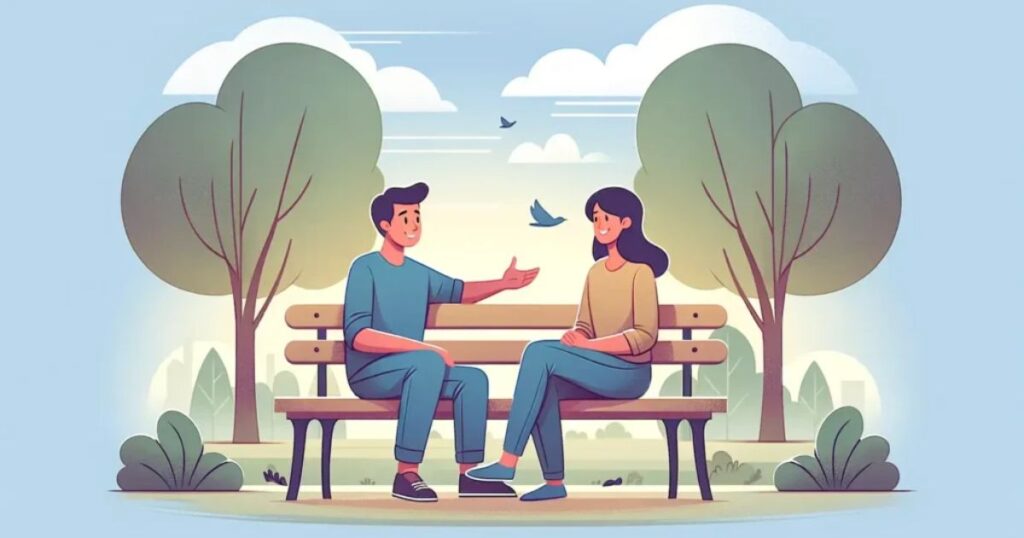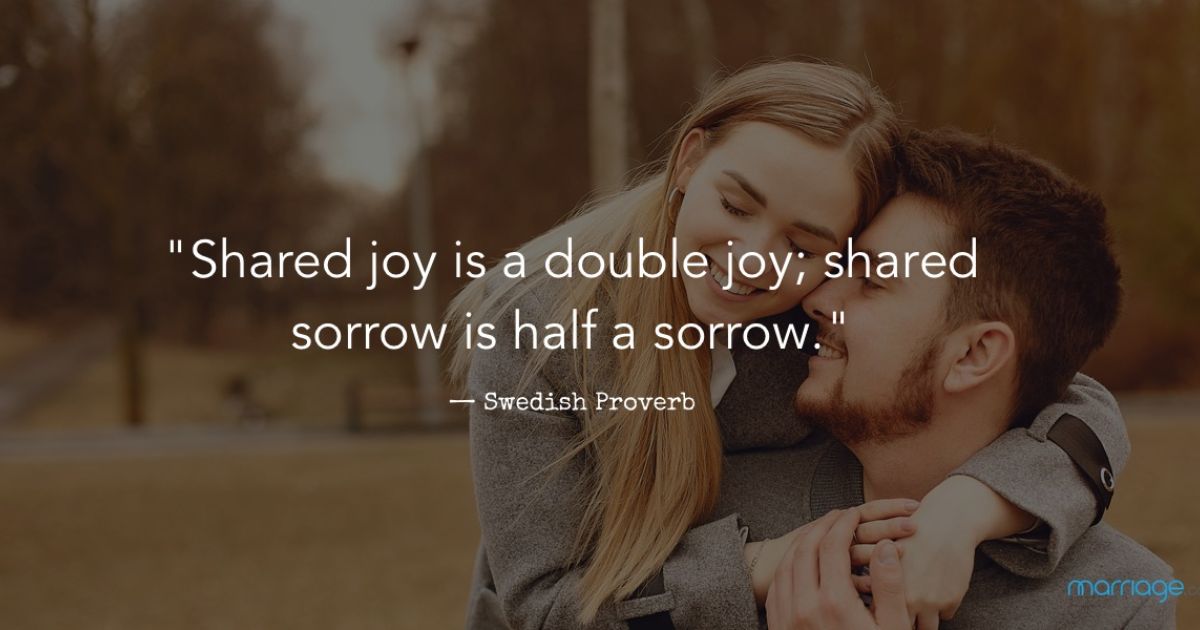Shared Joy Is A Double Joy; Shared Sorrow Is Tymoff encapsulates the profound impact of interpersonal connections on our emotional experiences. When we share moments of joy with others, the happiness is not only magnified within ourselves but also resonates deeply with those we share it with, doubling its significance.
Conversely, the notion that Shared Sorrow Is Tymoff reflects the idea that when we share our sorrows with others, the burden becomes lighter. Tymoff symbolizes the collective effort to alleviate individual pain through empathy and support from others.
By opening up about our struggles and vulnerabilities, we create a space for shared understanding and communal healing, demonstrating the resilience that can emerge from shared adversity.
In essence, Shared Joy Is A Double Joy; Shared Sorrow Is Tymoff emphasizes the transformative nature of human connection in both moments of celebration and times of hardship.
The Psychological Foundations of Shared Emotions
The psychological foundations of shared emotions lie in our innate human need for connection and belonging. Research in psychology emphasizes the importance of social interactions and relationships in shaping our emotional experiences.
One key psychological mechanism underlying shared emotions is empathy, the ability to understand and share the feelings of others. When we witness someone else’s joy or sorrow, our brains often mirror their emotional state, leading to a shared experience of emotions.
Additionally, social learning theory suggests that we learn about emotions through observation and interaction with others. From childhood, we observe how others express and respond to emotions, shaping our own emotional responses in similar situations.
Furthermore, attachment theory highlights the role of close relationships in regulating emotions and providing a secure base for emotional expression. When we share our emotions with trusted others, we seek comfort, validation and support, reinforcing the bond between individuals.
In summary, the psychological foundations of shared emotions are rooted in our social nature and innate capacity for empathy and connection. By understanding the mechanisms underlying shared emotional experiences, we can better appreciate the importance of relationships in shaping our emotional lives and fostering resilience and empathy within communities.

The Role of Social Support in Amplifying Joy
The role of social support in amplifying joy is paramount, as it serves as a catalyst for enhancing positive emotional experiences. When we share moments of happiness with others, their support and encouragement act as mirrors, reflecting and intensifying our feelings of joy.
Social support amplifies joy through various mechanisms. Firstly, the shared excitement and enthusiasm of others serve to validate and validate our own feelings of happiness, reinforcing the significance of the moment. Their smiles, congratulations, and expressions of delight serve as tangible evidence of our joy, further enhancing its intensity.
Moreover, social support provides a sense of belonging and connection, which amplifies the joy of shared experiences. Celebrating achievements or milestones with friends, family or colleagues strengthens interpersonal bonds and fosters a sense of community. Knowing that we are surrounded by supportive individuals who genuinely share in our happiness enhances the overall sense of joy and fulfillment.
Additionally, social support acts as a source of positive reinforcement, which amplifies the experience of joy. When others express their happiness and appreciation for our accomplishments, it validates our efforts and achievements, enhancing our sense of self-worth and satisfaction.
Overall, social support plays a crucial role in amplifying joy by validating, reinforcing, and enhancing our positive emotional experiences. By sharing moments of happiness with others, we not only deepen our interpersonal connections but also magnify the joy of the moment, creating lasting memories and strengthening our sense of well being.
Mitigating Sorrow Through Shared Experiences
Mitigating sorrow through shared experiences is a deeply human phenomenon that highlights the power of communal support in navigating difficult times. When individuals face sorrow or hardship, sharing their experiences with others can offer profound emotional relief and healing.
Shared experiences of sorrow allow individuals to feel less isolated and alone in their suffering. When others empathize and offer support, it can lighten the emotional burden and provide a sense of comfort and reassurance. Knowing that they are not alone in their struggles can bring a profound sense of relief and validation, fostering a deeper connection with others and promoting emotional resilience.
You might want to check: I fear no one, but respect everyone – tymoff
Moreover, sharing sorrow can also lead to collective healing and growth within communities. When individuals come together to support one another through difficult times, it creates a sense of solidarity and shared purpose. This communal support can help individuals find strength and resilience in the face of adversity, ultimately leading to greater emotional well-being for all involved.
In essence, mitigating sorrow through shared experiences underscores the importance of connection and empathy in our lives. By coming together to support one another through difficult times, we not only alleviate our own suffering but also contribute to a culture of compassion and support within our communities.

The Importance of Vulnerability in Sharing
The importance of vulnerability in sharing lies in its ability to deepen connections, foster empathy and promote emotional healing. Vulnerability involves opening up and revealing one’s true thoughts, feelings and experiences, even if they are difficult or uncomfortable. When individuals allow themselves to be vulnerable in sharing, it creates an authentic space for genuine connection and understanding to flourish.
By being vulnerable, individuals show their humanity and invite others to do the same, breaking down barriers and fostering deeper relationships. When people share their vulnerabilities, it creates an opportunity for empathy and compassion to thrive. Others can relate to their struggles, offer support and validate their experiences, creating a sense of belonging and acceptance.
Furthermore, vulnerability in sharing promotes emotional healing and growth. When individuals express their vulnerabilities and share their innermost thoughts and feelings with others, it can lead to a sense of catharsis and relief. It allows them to process their emotions, gain perspective and move forward with greater resilience and strength.
Moreover, vulnerability in sharing fosters trust and intimacy within relationships. When individuals are willing to be vulnerable with one another, it creates a sense of intimacy and connection that is essential for building deep and meaningful bonds. It allows for honest communication, mutual support and the development of a strong emotional foundation.
In summary, the importance of vulnerability in sharing cannot be overstated. By allowing ourselves to be vulnerable, we create opportunities for genuine connection, empathy and emotional healing. It promotes trust, intimacy and resilience within relationships, ultimately enriching our lives and enhancing our well being.
The Impact of Sharing on Mental Health
The impact of sharing on mental health is profound and multifaceted, playing a crucial role in promoting emotional well being and resilience. When individuals share their thoughts, feelings and experiences with others, it can have several positive effects on mental health:
- Emotional Validation: Sharing allows individuals to feel heard, understood and validated by others. When someone listens empathetically and validates their experiences, it can help alleviate feelings of loneliness and isolation, which are common contributors to poor mental health.
- Stress Reduction: Sharing difficult emotions or experiences with trusted individuals can act as a form of emotional release. Expressing feelings such as stress, anxiety or sadness can help individuals process and cope with these emotions more effectively, reducing their impact on mental well being.
- Social Support: Sharing fosters a sense of connectedness and support within social networks. Knowing that there are people who care and are willing to listen can provide a sense of security and comfort during challenging times. Social support is a powerful protective factor against mental health issues such as depression and anxiety.
- Perspective and Coping: Sharing allows individuals to gain new perspectives on their experiences and challenges. By discussing their thoughts and feelings with others, individuals may receive insights, advice or coping strategies that they had not considered before. This can help them develop more adaptive ways of coping with stressors and adversity.
- Normalization of Feelings: Sharing experiences can help individuals realize that they are not alone in their struggles. Learning that others have faced similar challenges and emotions can normalize their experiences, reducing feelings of shame or self blame. This normalization can promote self-compassion and acceptance, which are essential for good mental health.
- Building Resilience: Sharing experiences, particularly overcoming challenges or setbacks, can contribute to the development of resilience. When individuals receive support and encouragement from others during difficult times, it reinforces their ability to bounce back from adversity and adapt to life’s ups and downs.
In summary, sharing plays a vital role in maintaining and promoting mental health by providing emotional validation, social support, coping strategies and opportunities for growth and resilience. Encouraging open communication and fostering supportive relationships can have lasting positive effects on individuals’ well being.
You may also like: Meet Nala Cat: The Instagram Star With A Ton Of Fo – Tymoff

Cultivating a Culture of Sharing in Communities
Cultivating a culture of sharing within communities is pivotal for fostering empathy, connection, and resilience among individuals. It begins with promoting open communication channels where community members feel safe to express their thoughts, emotions and experiences without fear of judgment.
Normalizing vulnerability within the community encourages individuals to share openly, breaking down barriers and fostering a culture of authenticity and acceptance.
Providing supportive spaces, both physical and virtual, further encourages sharing and connection among community members. Community centers, online forums, and social media groups dedicated to sharing experiences and offering support serve as platforms for individuals to come together, find common ground and offer empathy and encouragement.
Additionally, educating community members about the importance of sharing and providing resources on active listening and empathy empowers them to support one another effectively, contributing to a culture of mutual understanding and support.
Practical Tips for Sharing Joy and Sorrow
Practical tips for sharing joy and sorrow can empower individuals to navigate these emotional experiences with empathy, authenticity and support. Firstly, prioritizing active listening is essential; being fully present and attentive when someone shares their joys or sorrows validates their experiences and fosters deeper connections.
Additionally, communicating one’s own emotions clearly using I statements allows for honest expression while considering the listener’s feelings, promoting open dialogue and understanding.
Cultivating supportive social circles is also crucial; surrounding oneself with empathetic and caring individuals creates a safe space for sharing both joyous moments and struggles. These relationships serve as pillars of support, providing comfort and encouragement during both times of celebration and hardship.
Moreover, simply being present for others can be a powerful form of assistance. Offering a listening ear or a shoulder to lean on can provide tremendous comfort and support during times of sorrow or celebration. Ultimately, practicing these practical tips fosters a culture of empathy, connection and resilience, enabling individuals to share their joys and sorrows authentically and compassionately within their communities.
The Ripple Effect of Shared Emotions
The ripple effect of shared emotions illustrates the profound impact that our emotional experiences can have on individuals and communities, extending far beyond the initial moment of sharing. When individuals share their emotions—whether joyous or sorrowful—it creates a ripple effect that spreads throughout their social networks, influencing the emotions and behaviors of others.
Shared joy has the power to uplift and inspire those around us, sparking feelings of happiness and positivity in others. When individuals celebrate achievements or milestones together, it fosters a sense of camaraderie and connection, leading to shared experiences of joy and fulfillment. This ripple effect can ripple through communities, creating a ripple effect of positivity and unity.
Conversely, shared sorrow can also have a profound ripple effect, eliciting feelings of empathy, compassion, and support from others. When individuals share their struggles or hardships, it creates a shared space for understanding and healing, fostering a sense of solidarity and resilience within communities. This ripple effect can lead to increased social support, empathy and understanding, strengthening relationships and bonds.
Ultimately, the ripple effect of shared emotions highlights the interconnectedness of human experiences and the importance of emotional expression and connection. By sharing our joys and sorrows with others, we not only enrich our own lives but also contribute to the collective well being and resilience of our communities.

Frequently Asked Questions
How does sharing joy with others amplify the experience?
Sharing joy with others enhances the experience through mutual celebration and support. When individuals share their positive experiences, such as achievements or happy moments, it fosters a sense of camaraderie and connection, intensifying the feelings of happiness and fulfillment.
What are the benefits of sharing sorrow with others?
Sharing sorrow with others lightens the emotional burden by distributing it among individuals. It creates a shared space for empathy, compassion, and support, allowing individuals to feel less isolated and alone in their struggles. This shared experience fosters resilience and strengthens social bonds within communities.
How does vulnerability play a role in sharing emotions?
Vulnerability is essential in sharing emotions as it requires individuals to be open and authentic about their experiences. By being vulnerable, individuals create a space for genuine connection and understanding with others, fostering empathy and mutual support.
What impact does sharing emotions have on mental health?
Sharing emotions, whether joyful or sorrowful, is beneficial for mental health as it provides emotional validation, social support and coping mechanisms. It reduces feelings of isolation and loneliness, promotes resilience and fosters a sense of belonging and connection within communities.
How can communities cultivate a culture of sharing based on this concept?
Communities can cultivate a culture of sharing by promoting open communication, normalizing vulnerability and providing supportive spaces for individuals to express their emotions. By celebrating joys and sharing sorrows together, communities can strengthen social bonds and foster empathy, resilience and well being among their members.
Conclusion
In conclusion, the concept of Shared Joy Is A Double Joy; Shared Sorrow Is Tymoff underscores the profound impact of sharing emotions on individual well-being and community cohesion. Whether experiencing moments of joy or sorrow, the act of sharing with others magnifies the emotional experience, fostering deeper connections and mutual support.
By celebrating achievements together, joy becomes multiplied, enriching the bonds within communities and creating lasting memories. Similarly, sharing sorrows lightens the burden through collective empathy and understanding, transforming individual struggles into shared experiences of resilience and solidarity.
Ultimately, embracing the ethos of shared emotions cultivates a culture of empathy, connection and support, enriching the lives of all involved and reaffirming the inherent value of human connection.
Recommended this Post: Melanie Zanona Age|Husband|Wiki|Salary|Net Worth

Passionate wordsmith navigating the currents of trending topics. Crafting compelling narratives that captivate and inform, I explore the pulse of contemporary issues with creativity and insight. Join the journey











